Image Gallery: Russia's Beautiful Killer Whales
White Orca
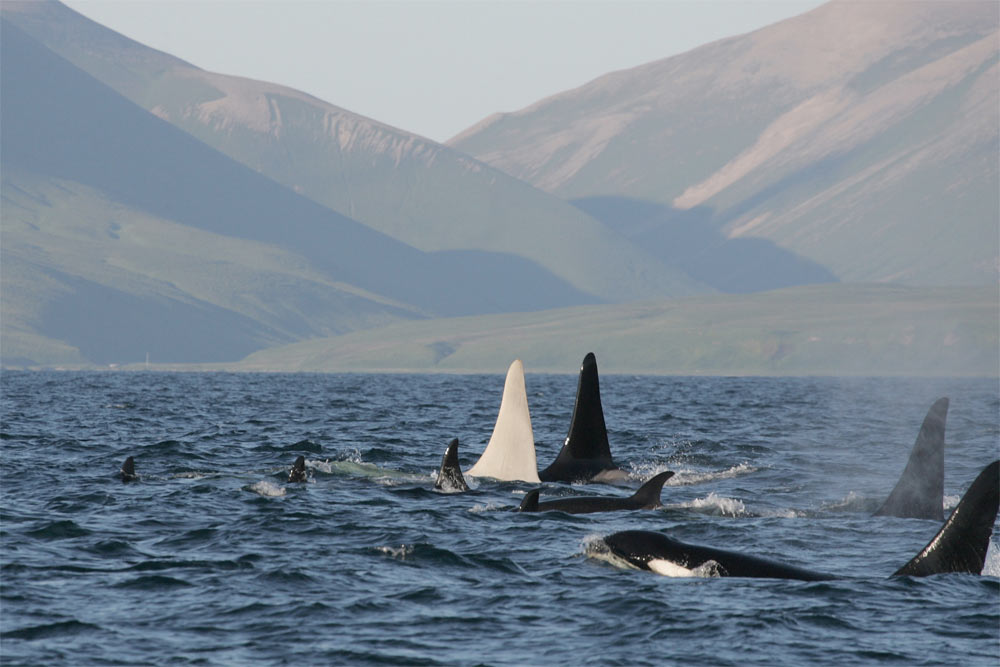
A mature all-white male orca, the only one of its kind known, has been spotted in the North Pacific off the east coast of Russia, scientists announced Monday (April 23). After seeing its towering white dorsal fin breaking through the water's surface, the team named the distinctive beast "Iceberg." The researchers first spotted the mature killer whale with his pod of 13 relatives (shown here) in August 2010 in waters around the Commander Islands. [Read full story about Iceberg]
Iceberg & Brother
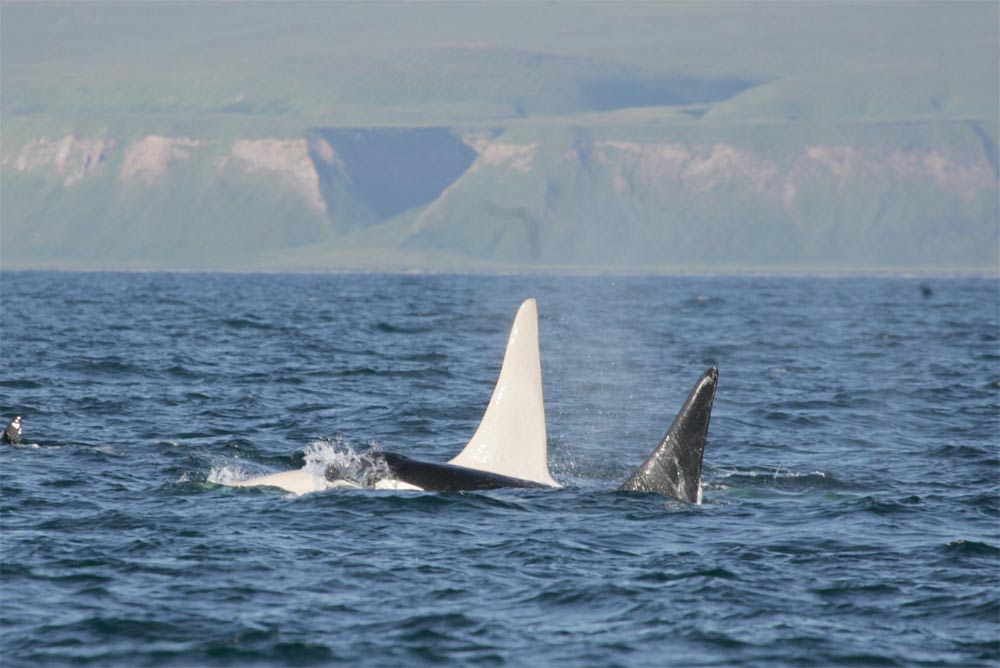
Iceberg swimming beside another male killer whale, possibly his brother.
Albino Orca
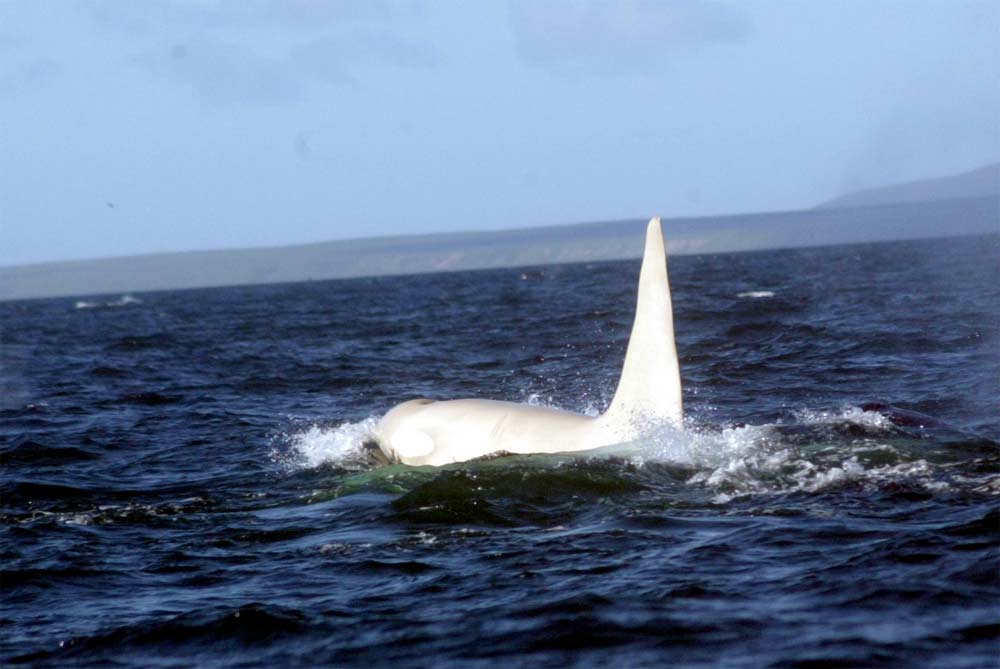
Iceberg, a mature male estimated to be a ripe old 16 years, is apparently very healthy, researchers say.
Baby Orca!
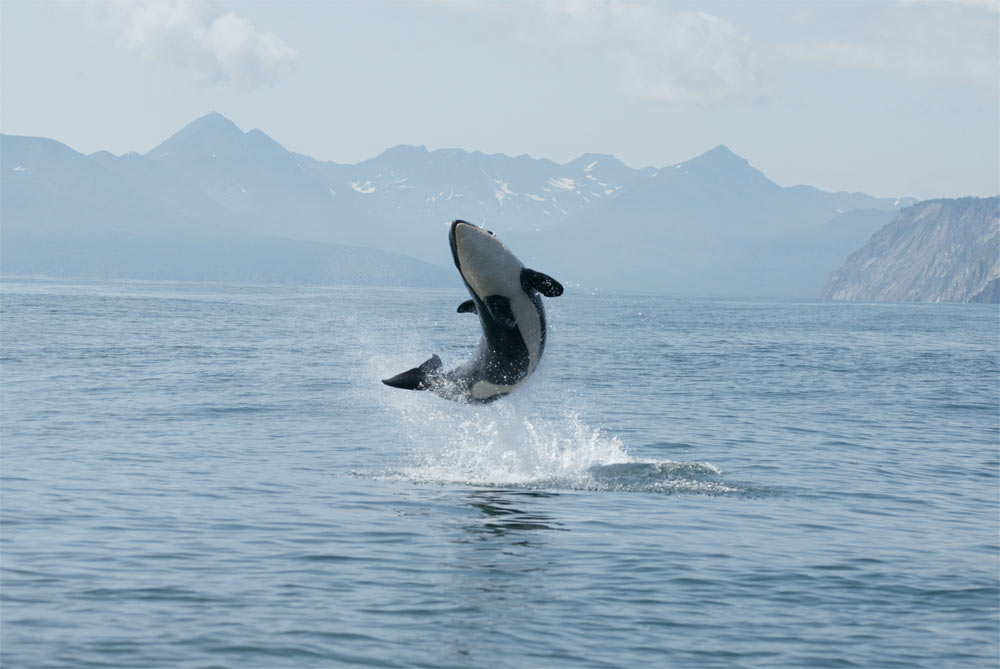
A young orca jumping from the water against the volcanic backdrop of Avacha Gulf, Kamchatka.
ID'ing Dorsal Fins
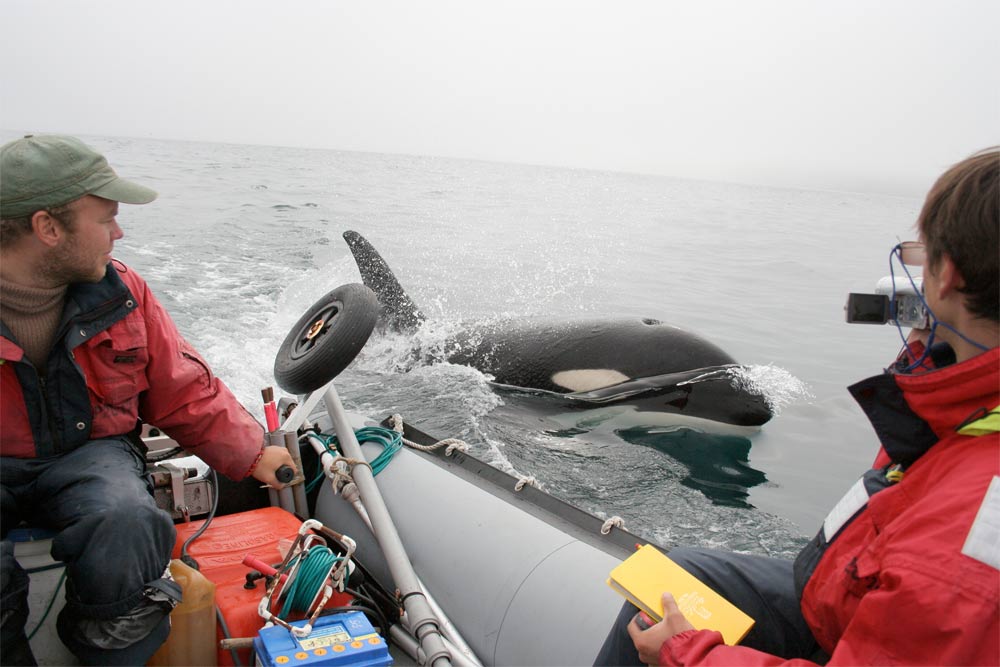
Researchers with the Far East Russia Orca Project have been studying orcas for more than a decade. Photographing the dorsal fin of orcas allows scientists to identify the individuals.
Iceberg or Dorsal Fin?
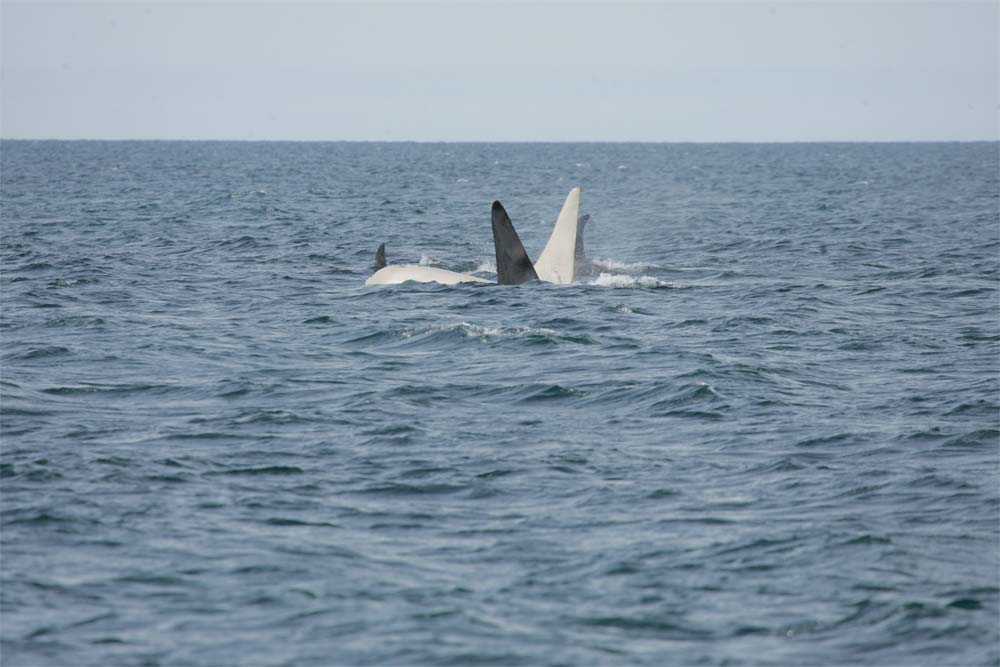
Iceberg's dorsal fin extends nearly 6.6 feet (2 meters) high, a sight that led to the orca's name.
Orca Dialects
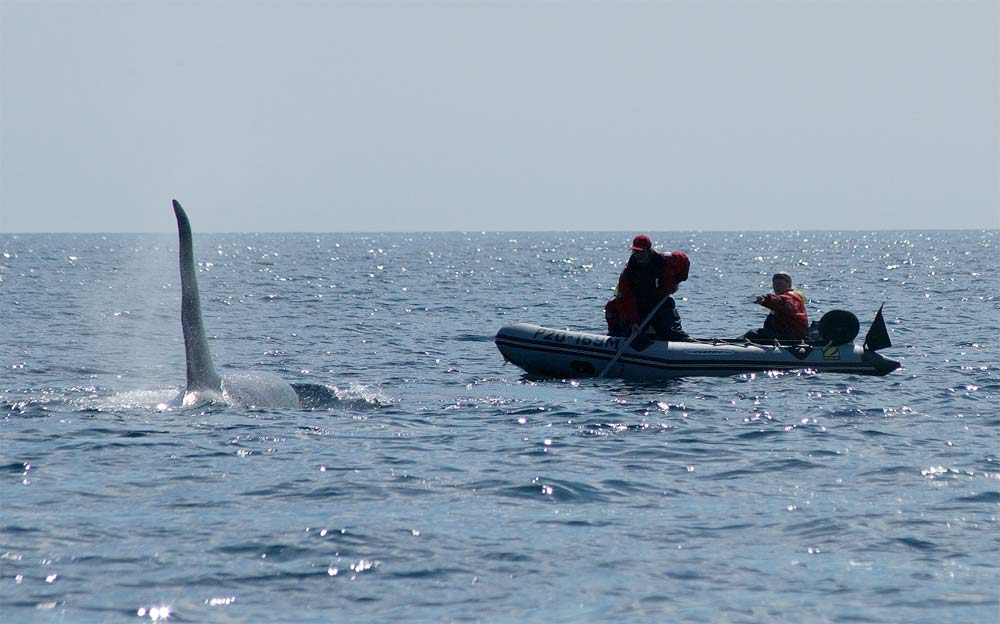
Here, FEROP (Far East Russia Orca Project) scientists try to record the sounds of the killer whales.
Sign up for the Live Science daily newsletter now
Get the world’s most fascinating discoveries delivered straight to your inbox.
Jeanna Bryner is managing editor of Scientific American. Previously she was editor in chief of Live Science and, prior to that, an editor at Scholastic's Science World magazine. Bryner has an English degree from Salisbury University, a master's degree in biogeochemistry and environmental sciences from the University of Maryland and a graduate science journalism degree from New York University. She has worked as a biologist in Florida, where she monitored wetlands and did field surveys for endangered species, including the gorgeous Florida Scrub Jay. She also received an ocean sciences journalism fellowship from the Woods Hole Oceanographic Institution. She is a firm believer that science is for everyone and that just about everything can be viewed through the lens of science.









